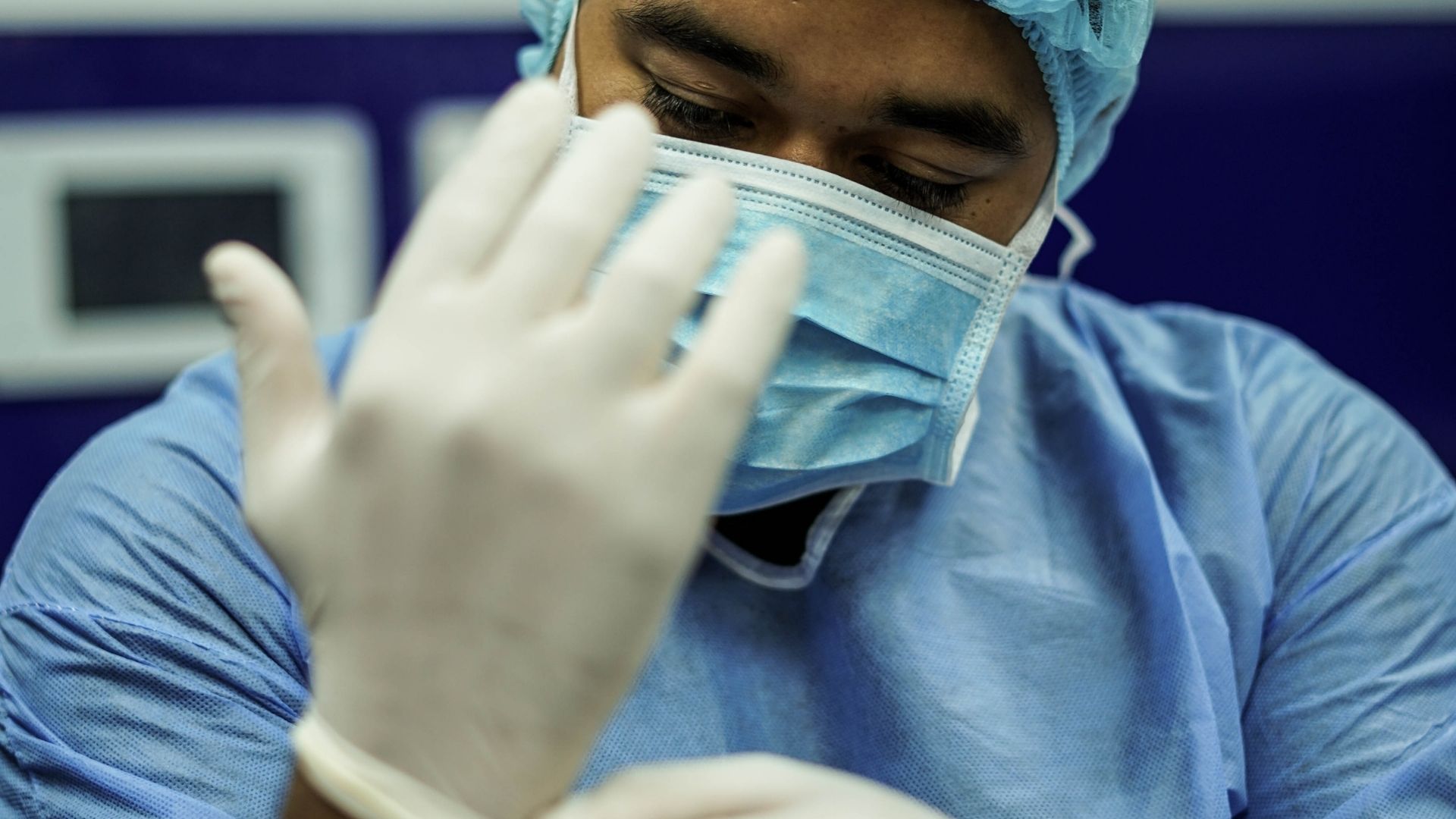“It doesn’t take a genius to work out that, although prioritising companies based on their political connections is great for them, it is also likely to be terrible for taxpayers.
“An honourable government would apologise to the public and promise that this will never happen again.”
A DHSC spokesperson said: “Our priority throughout the pandemic has been saving lives, and we have delivered over 19.1 billion items of PPE to frontline staff to keep them safe.
They added: “Where contracts are in dispute, we are seeking to recover costs from suppliers and we expect to recover significant amounts of taxpayers’ money.”
The NAO investigation found that around 14.1 billion items of PPE are yet to be distributed, while 3.6 billion PPE items in storage are not suitable for front-line services.
The spending watchdog said the Department for Health and Social Care (DHSC) is paying millions to store excess items of PPE that are yet to be distributed, worth £8.6 billion in total, despite declaring the country should learn to “live with Covid”.
Advertising helps fund Big Issue’s mission to end poverty
The investigation found that, by November 2021, it had cost the government £737million to store PPE, more than half of which was due to not being able to remove items from shipping containers on time.
Strikingly, the government is spending an estimated £7 million a month storing items it does not need, which is around 10 per cent of the total PPE purchased. Around half of these items are estimated to have an expiry date that is less than six months away.
A further 1.5 billion items have been wasted due to having passed their expiry date for use. The DHSC estimates the cost of these expired items to be £619 million, while the government is still waiting on 5 billion items of PPE to be delivered to the UK.
The NAO said this was due to the difficulty to assess the total demand for PPE at the start of the pandemic.
A spokesperson for the Department for Health and Social Care said: “Having too much PPE was preferable to having too little in the face of an unpredictable and dangerous virus, given this was essential to keep our NHS open and protect as many people as possible.”
More than 3.5 billion items still in storage are not suitable for front-line services, 11 per cent of the total PPE bought by the UK. The investigation found that half the 51 VIP lane suppliers provided some PPE items that are classified as not currently suitable for front-line services.
Advertising helps fund Big Issue’s mission to end poverty
In January a high court found the government awarded contracts to suppliers in the VIP lane on a “flawed basis”, with evidence that “opportunities were treated as high priority even where there were no objectively justifiable grounds for expediting the offer.”
The DHSC is managing 176 contracts where it believes it may not achieve full value for money, with an estimated £2.7 billion at risk, the NAO said. Some 57 of those were awarded through the VIP lane.
“In around two-thirds of disputed contracts, the primary cause of contractual dispute is the quality of PPE that has been delivered,” the NAO said.
Other disputes relate to PPE not being delivered, payment issues, expired products and missing paperwork.
The DHSC is working to save on some of these costs and expects to secure £572 million in reduced costs as a result of reducing or cancelling 38 of these contracts.
In total, 55 per cent of the 31.5 billion PPE items received in the UK were distributed to front-line health and social care staff.
Advertising helps fund Big Issue’s mission to end poverty









